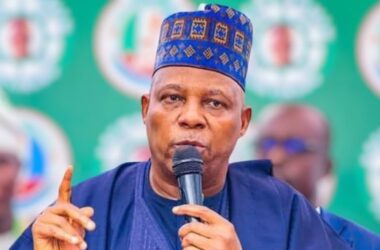The Minister of Works, David Umahi, has offered a clear explanation for why the Federal Government will begin tolling roads across Nigeria. Speaking during the eighth Ministerial Press Briefing held at the National Press Centre in Abuja, Umahi addressed journalists on the matter and pointed to economic goals and sustainability as key reasons for the policy.
The event was also attended by the Minister of Arts, Culture and the Creative Economy, Hannatu Musawa, and the Minister of Water Resources and Sanitation, Professor Joseph Utsev.
Umahi noted that the administration of President Bola Ahmed Tinubu is focused on building a $1 trillion economy. According to him, tolling federal roads is a necessary part of that vision. He explained that roads currently under construction were designed from the start to be tolled once completed.
“Truly, the most important thing is not just building these roads. I’ve always said that in the past, we have built roads, but this is the only time that a President is constructing roads,” he said.
The Minister further noted that in the past, many roads failed to last more than 50 years, and there were constant issues with quality and maintenance. He said the government wants to change that pattern by building better roads and making sure they last longer. This, he said, requires a different approach, including tolling.
According to Umahi, Nigeria has about 35,000 kilometers of federal roads. With the addition of new infrastructure under the Legacy Project, the network is expected to grow to over 38,000 kilometers. He explained that the cost of maintaining and completing all these roads is too high for the federal government to handle alone through yearly budget allocations.
That’s why, Umahi said, the government is now focusing on the Highway Development and Management Initiative (HDMI), which uses a public-private partnership model. Under this model, private investors help finance, operate, and maintain the roads, and tolling becomes part of the agreement.
He also said that by June, the government will begin a series of meetings with communities and road users to explain the tolling plan and ask for support.
“So that is what informs the reason for tolling. Not just to have the private sector participate just like in every other, you know, civilized country, but also ensure that they operate and maintain the roads,” he said.









